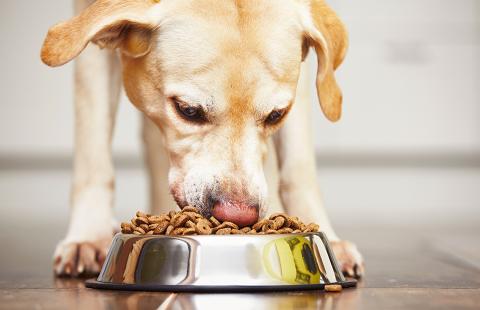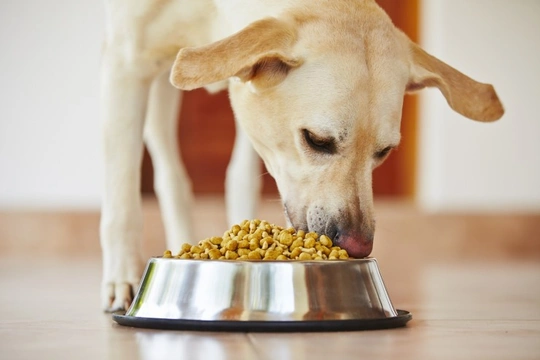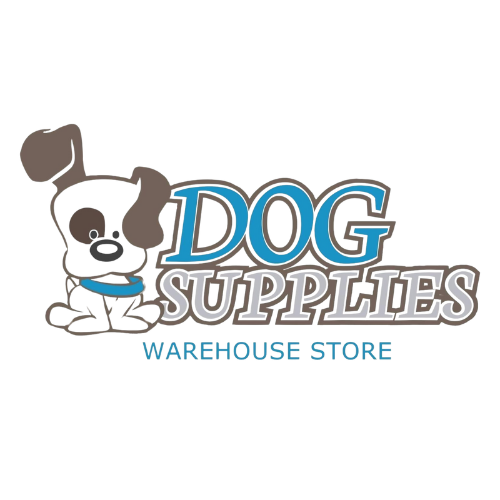Feeding your dog properly is more than just filling up their food bowl. Just like humans, dogs require a well-balanced diet to stay healthy, maintain energy levels, and prevent diseases. Scientific standards in dog nutrition focus on providing the correct balance of nutrients, maintaining a proper feeding schedule, and adjusting their diet based on age, activity level, and health needs. In this article, we will guide you through how to feed your dog correctly, following scientific principles to ensure they live a healthy, happy life.
Importance of Proper Nutrition for Dogs
Feeding your dog a balanced diet is essential for promoting long-term health and preventing diseases. Proper nutrition helps maintain a strong immune system, supports muscle and bone health, and ensures optimal organ function. Scientific feeding guidelines are designed to provide dogs with all the essential nutrients they need to thrive, avoiding the pitfalls of underfeeding, overfeeding, or feeding an unbalanced diet.
Modern dog food is formulated based on extensive research in animal nutrition, offering dogs the right amounts of proteins, fats, carbohydrates, vitamins, and minerals. Feeding your dog according to these standards ensures they receive all the nutrients necessary for energy, growth, and repair.
Feeding your dog properly can reduce the risk of health issues like obesity, diabetes, joint problems, and digestive disorders. It also improves their coat, skin, and overall behavior, ensuring a higher quality of life.
Understanding a Dog’s Nutritional Needs
Macronutrients Required by Dogs:
- Proteins: Essential for muscle growth, tissue repair, and maintaining a strong immune system. Dogs require high-quality animal proteins such as chicken, beef, or fish to meet their daily needs.
- Fats: A primary energy source for dogs, fats also support brain health and promote a shiny coat. Healthy fats like omega-3 and omega-6 fatty acids are essential.
- Carbohydrates: While not strictly necessary for all dogs, carbohydrates provide fiber for digestion and can be a useful energy source, particularly in highly active dogs.

Micronutrients Essential for Dogs:
- Vitamins and Minerals: Key vitamins like A, D, E, and K, as well as minerals such as calcium and phosphorus, are critical for bone health, immune function, and metabolic processes. These micronutrients must be included in the diet in balanced amounts to prevent deficiencies or excesses.
- Antioxidants: Found in fruits and vegetables, antioxidants help protect cells from damage, support immune health, and can even slow down aging processes in dogs.
Water as a Crucial Nutrient:
Water is just as important as food for your dog’s health. It aids digestion, regulates body temperature, and helps in the absorption of nutrients. Make sure your dog always has access to fresh, clean water to stay hydrated.
Choosing the Right Type of Food for Your Dog
Commercial Dog Food Options
- Kibble (Dry Food): One of the most common choices due to its convenience and cost-effectiveness. High-quality kibble contains all essential nutrients and supports dental health by reducing plaque buildup.
- Canned (Wet Food): Offers higher moisture content, making it a great option for dogs that need extra hydration or those who are picky eaters. However, it may be less beneficial for dental health.
- Raw Food Diet: A controversial choice, raw diets include uncooked meats, bones, and organs. While some believe it mimics a dog’s natural diet, raw feeding comes with risks of bacterial contamination and imbalanced nutrition.
Homemade Dog Food
- Advantages: Homemade meals allow you to control the quality and freshness of ingredients, ensuring no artificial preservatives or fillers.
- Risks: Without proper knowledge, homemade diets can be nutritionally unbalanced, leading to deficiencies in essential vitamins and minerals.
- Consult a Veterinarian: Always involve a veterinary nutritionist to ensure the meals you prepare meet your dog’s dietary needs.
Special Diets for Dogs with Health Conditions
Certain dogs require specialized diets to manage health conditions:
- Low-fat diets are necessary for dogs prone to pancreatitis.
- Grain-free diets may help dogs with food allergies, although there are concerns about potential links to heart disease.
- Hypoallergenic diets are recommended for dogs with food intolerances.

How to Determine the Right Portion Sizes
Understanding Caloric Needs
Dogs have different caloric requirements based on their size, age, breed, and activity level. A simple way to calculate their daily caloric intake is to use a dog food calculator or refer to the feeding chart provided by most commercial dog foods. Monitoring your dog’s weight and adjusting portions based on energy expenditure is crucial.
Adjusting Portions Based on Activity Level
Active dogs, such as working breeds or those regularly engaged in exercise, will need higher calorie portions than sedentary dogs. Likewise, older dogs or less active breeds require fewer calories to avoid weight gain.
Monitoring Your Dog’s Weight and Condition
Use the Body Condition Scoring (BCS) system to assess if your dog is at a healthy weight. The BCS ranges from 1 (underweight) to 9 (overweight), with 5 being ideal. Adjust their portions accordingly if they are gaining or losing weight too quickly.
The Importance of Feeding Schedule and Routine
Consistency in Feeding Times
Feeding your dog at the same time each day helps regulate their digestive system and promotes good behavior. Dogs thrive on routine, and scheduled feeding ensures that they know when to expect meals.
Free Feeding vs. Scheduled Feeding
Free feeding, or leaving food out all day, can lead to overeating and obesity. Scheduled feeding, on the other hand, allows you to control portions and monitor how much your dog is consuming.
Avoiding Common Feeding Mistakes
- Table Scraps: Feeding human food can lead to obesity, digestive issues, and bad behavior.
- Too Many Treats: Excessive treats can unbalance your dog’s diet and contribute to weight gain.
- Exercise Timing: Avoid feeding your dog immediately before or after strenuous activity to prevent bloating or digestive issues.

Adapting Your Dog’s Diet as They Age
Nutritional Needs for Puppies: Puppies require more calories, protein, and fat than adult dogs to support rapid growth. Feed them three to four times a day with food specifically formulated for puppies.
Adult Dogs: Once fully grown, dogs need a diet that maintains their energy levels and prevents weight gain. Choose food that supports their lifestyle, whether they’re active or more sedentary.
Senior Dogs: Senior dogs have lower caloric needs but often require diets higher in antioxidants, fiber, and joint-supporting supplements. Switching to senior dog food formulas can help manage their aging needs.
Feeding your dog properly according to scientific standards is critical for their health and happiness. By understanding their nutritional needs, choosing the right type of food, and adjusting portion sizes based on activity level, you can ensure they receive all the nutrients they need. Remember, every dog is different, so always consult a veterinarian to tailor your dog’s diet to their specific needs.

After 5 years in a high pace business management role, I partnered with an e-commerce developer to start building Dog Supplies Warehouse.
Our number one goal is to make sure all products are managed and delivered to our customers door fast and accurately.

